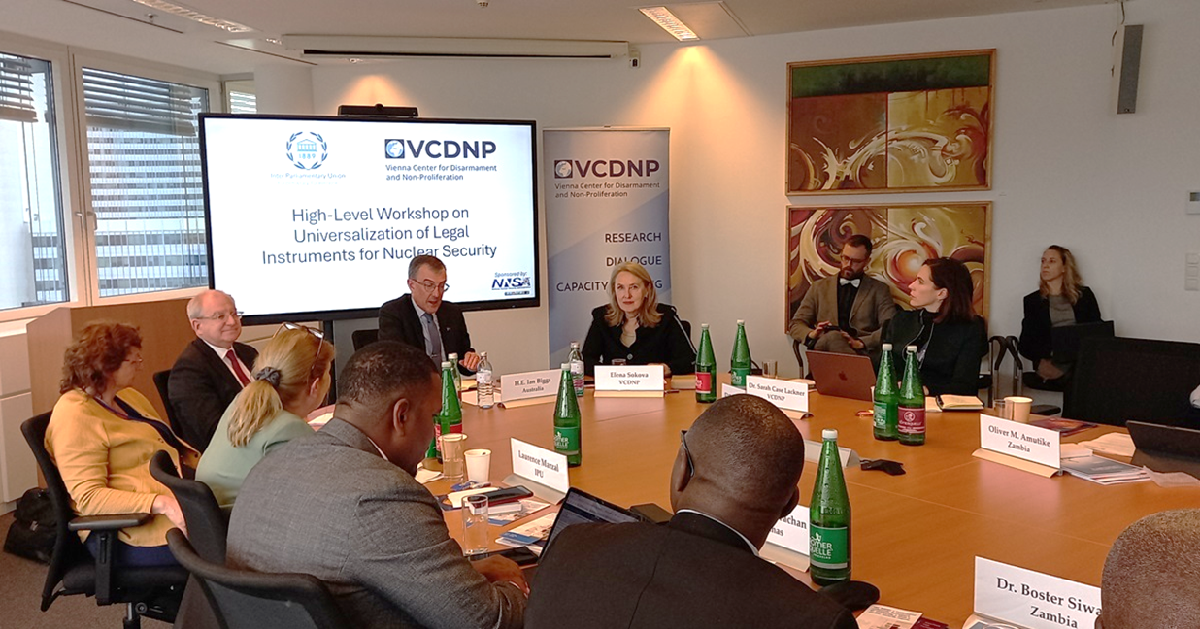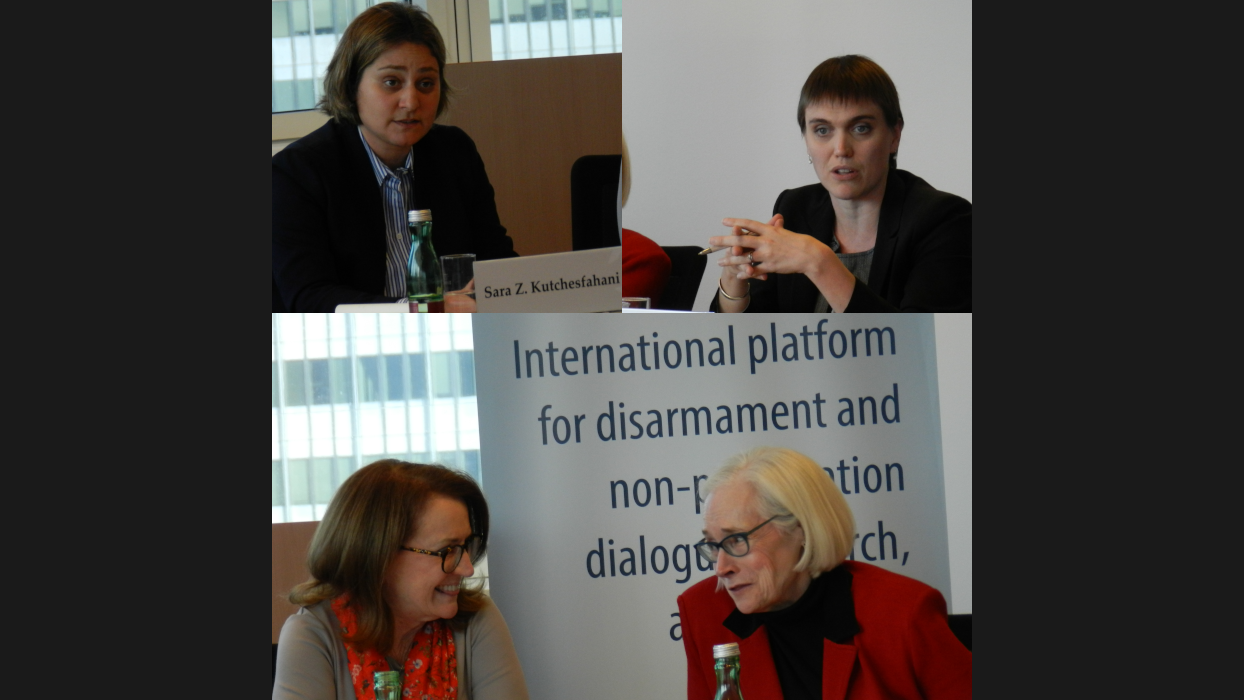
On 31 October 2018, the VCDNP and the Fissile Materials Working Group (FMWG) held a seminar on the Nuclear Security Summit (NSS) process. It was moderated by VCDNP Executive Director Laura Rockwood and featured three speakers, including Kelsey Davenport of Arms Control Association (ACA), Dr. Sara Z. Kutchesfahani of the Center for Arms Control and Non-Proliferation and the FMWG, and former Ambassador of the USA to the Conference on Disarmament Laura E. Kennedy. The event also marked the European release of the ACA/FMWG report “Nuclear Security Summits: An Overview of State Actions to Curb Nuclear Terrorism 2010–2016”, which offers a comprehensive assessment of the national commitments States undertook as part of the process in 2010-2016.
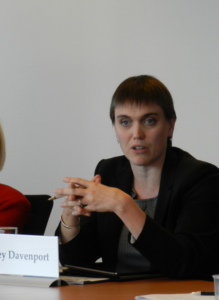
Ms. Davenport began with a brief overview of the NSS history. She cited several factors that sparked US interest in nuclear security in late 2000s, among them the disparity of levels of nuclear security in former-Soviet countries Mr. Obama visited in 2005, an increase in illicit trafficking of radioactive material and the growing interest of non-state actors, particularly Al-Qaeda, in weapons of mass destruction. Why was there a need for a new format of international discussion of nuclear security involving heads of States? The expert set out three reasons: (1) to escape traditional non-proliferation and disarmament fora with dubious records of inefficiency; (2) to incorporate States not party to the Treaty on the Non-Proliferation of Nuclear Weapons (NPT); and (3) to create momentum through the direct involvement of heads of State, as opposed to national delegations of lower political authority.
Ms. Davenport emphasised that the ultimate goal of NSS was to secure all vulnerable nuclear material around the world within four years. In total, four summits were held every two years since 2010, with a number of participating States ranging from 47 to 53. The summits provided four types of deliverables: (1) four communiqués that reaffirmed participating States’ commitment to nuclear security; (2) 935 commitments from individual States, also called “house gifts”, almost all of which have been implemented; (3) around 50 multinational commitments, known as “gift baskets”, that targeted key areas of nuclear security; and five action plans for international organizations to advance the work of the summits beyond their conclusion.
During her presentation, Ms. Davenport also discussed some negatives of the NSS process, such as the lack of a formal reporting mechanism and inconsistency in the form and contents of the progress reports it produced. The ACA/FMWG joint report presented during the seminar is meant to fill this gap, provide public scrutiny of the actual implementation of States’ commitments and assess progress in achieving an effective nuclear security regime.
While Ms. Davenport’s presentation covered the NSS process, Dr. Kutchesfahani focussed on the findings of the report itself. In particular, she outlined some NSS achievements, including:
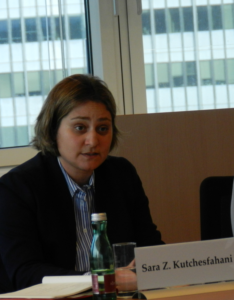
Dr. Kutchesfahani, however, warned that international community “should not be complacent”, as the threat of nuclear terrorism is still significant. She concluded that nuclear security is a priority issue on which world leaders should be working together, much like the denuclearisation of the Korean Peninsula, Joint Comprehensive Plan of Action or Intermediate-Range Nuclear Forces Treaty.
Ambassador Kennedy shared her views on the future of nuclear security, which will build upon the achievements of the NSS process. In her opinion, nuclear security should be a global concern, since virtually all States have nuclear and radioactive material.
According to Ambassador Kennedy, non-governmental organisations, the academic community and civil society will push for more changes in the field in addition to governments.
In this regard, she lauded the latest edition of the Nuclear Security Index, published by the Nuclear Threat Initiative in 2018, as a useful tool for States to check what is missing in their nuclear security regime. Other international players, such as Interpol and the Global Partnership against the Spread of Weapons and Materials of Mass Destruction will also have a substantial role in discussions about nuclear security.
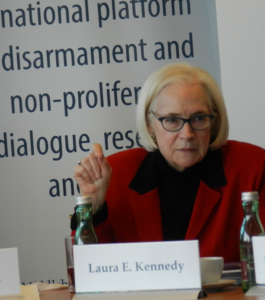
Challenges identified by Ambassador Kennedy included the increasing complexity of nuclear security, especially cyber threats, the importance of educating the new generation of policy experts and the critical policy difference between nuclear security and non-proliferation which is often poorly understood. As to positive trends, she pointed to bipartisan consensus in the USA on the importance of nuclear security, as well as to increased transparency on nuclear security in the military sphere in the USA as well as France and the UK. Ambassador Kennedy was convinced that increased level of nuclear security would promote the sharing of peaceful nuclear applications globally.
Ambassador Kennedy also praised the NSS for the promotion of the amended CPPNM. According to her, States Party should nevertheless do more to convince non-signatories to join the regime and thus achieve its global application. She also proposed a regular review mechanism for the CPPNM/A: similar to the review process of the NPT, States Party to the CPPNM would convene every five years with appropriate preparation.
